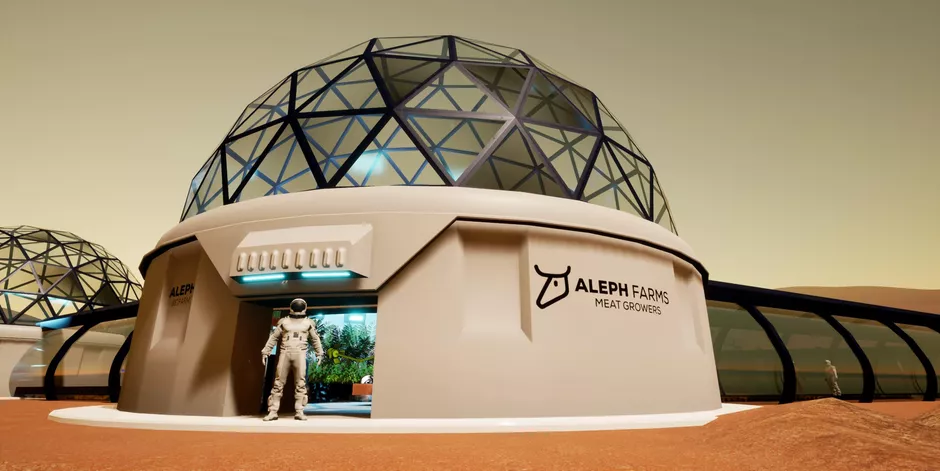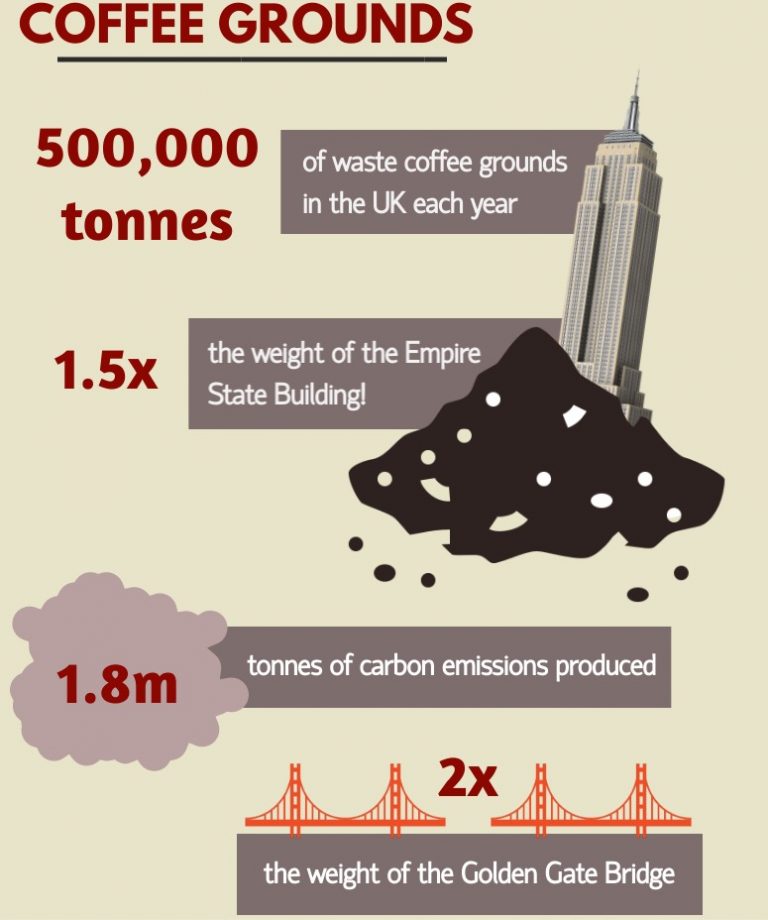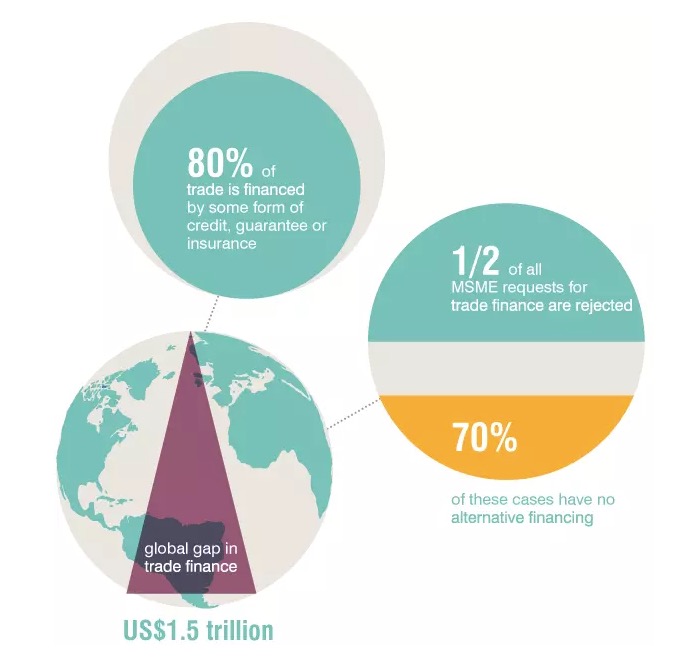
Morning all. Well, it’s election day, and whichever side you fall the result will have a bearing on the outlook for global sustainable business and technology. Find out how below…
In today’s edition:
🌿How your lawn can fight climate change
🍖 Growing Meat on Mars
☕️ Sustainable Coffee-Tech

Blackrock weighs in on the ‘alphabet soup’ of ESG reporting standards
Investor appetite for sustainable investing has exploded. September saw record inflows into environmental, social and governance (ESG) equity funds. One snag with sustainable indices is they rely on rating agencies to grade companies on their ESG performance all with different methods. The result – an ‘alphabet soup’ of competing standards, making comparison between companies near to impossible, confusing investors and leaving the door open for greenwashing (See Boohoo). Blackrock, the world’s largest asset manager, has just backed mass adoption of the globally recognised IFRS standards as the ‘most practicable and likely to succeed’.
Does this confuse things further: The Big Four accountancy firms recently unveiled their own ESG reporting framework. Today’s election results could play a part by determining the fate of mandatory ESG disclosures from Washington – A democratic win could be crucial in determining which ESG letters survive in the soup.
Bacardi’s plan to open source sustainability
Barcadi plans to launch compostable bottles by 2023, replacing 3,000 tons of plastic annually. The technology behind these compostable bottles is a polymer developed by Danimer Scientific from canola, palm and soy seeds. Bacardi claims the bottles decompose in 18 month, whether they are composted, left in soil or end up in the ocean – compared to the 400-5000 years it takes for conventional plastic bottles to decompose.
Our take: Bacardi has promised they will open source the compostable bottle technology with competitors – tackling industry wide plastic use. Open sourcing is also a clever business move. By increasing adopters of the new technology, production costs are driven lower, benefitting profit margins. Cheers to that.
🤖 Future of Tech (1-minute read)
Growing meat on Mars
Aleph Farms, an Israeli company specialising in steaks grown from animal cells, has launched a program to establish meat cultivations facilities in outer space. The company has already succeeded in assembling a mini beef steak in space using a 3D bioprinter. Aleph Farms’ ultimate goal is to provide healthy nutrition to anyone, anytime anywhere. Their belief is that if you can make meat on the ISS or Mars, you can make it in the Sahara or Antarctica; providing a solution to the global food crisis. We’re some way off a BBQ on Mars, but the vision of mass meat cultivation to feed the globe is gaining pace.c

Keep off the grass – Use your lawn to fight climate change
Suburban life has taken on a new attraction during the pandemic and Atlantan startup, NetZero, allows city escapers to use their new lawns to fight climate change. The startup’s ‘orbs’ dissolve into watering cans and promote the development of underground mycorrhizae fungi networks. The result: a doubling of carbon dioxide capture without altering above ground appearance. If adopted by all households in America this would represent a 13% difference of world’s global emissions of CO2 related to changes in land use. Better yet sales of the NetZero orbs subsidise afforestation projects run by women in Nepal, Bali and Uganda.
We love this because: it taps into increasing consumer demand for direct action and personal responsibility for their carbon footprint, without the need for change in behaviour.
💡Start-up Spotlight (1-minute read)
Fancy a brew?
The world drinks over 2.25 billion cups of coffee everyday, resulting in 500,000 tonnes of coffee ground being dumped (and emitting methane) in landfill annually. To tackle coffee’s role in the climate crisis, Kaffe Bueno, a Danish startup, has raised $1.3million to develop its upcycling process for coffee ground. Kaffe Bueno’s bio-preservation system prevents used coffee from going mouldy, allowing for alternative compounds to be extracted and transformed into food and personal care products.
Our Take: The coffee industry has recently attracted a host of sustainable tech innovations. Atomo! is reverse engineering coffee’s aroma and taste from upcycled ingredients to reduce food waste. While GrainChain uses blockchain to bring improved efficiency and transparency to Honduras’ coffee supply chain.

🏊♀️ Deep Dive (1-minute read)
Blockchain – Mind the Gap
The problem: 85% of global trade relies on trade finance. Exporters want to be paid upon shipment, while importers want to pay when they receive goods and for centuries, bankers have filled this gap to remove risk (currency fluctuations, political instability, creditworthiness). However, there is a $1.5 trillion gap between demand for trade finance and supply. Least developed countries are hardest hit with rejection rates in Africa exceeding 50% (Vs 17% for multinationals). Preventing trade from fulfilling its potential for growth, job creation and development.
What’s the issue? In industry surveys financiers cite anti-money laundering and Know Your Customer requirements as the predominant impediments to expanding trade finance to the developing world.
How Blockchain can help: Blockchain (explained here) allows for an immutable record of a company’s historic transactions. This increases transparency and trust between trade partners. Third-parties are able to access and check digital records to ensure compliance and facilitate trade finance. DLT Ledgers a Singaporean start-up has already processed $3.3billion in trade finance using blockchain technology.

Little Bytes
Quote: “I’d love to see the industry develop technologies that empower and enable people, as well as allowing them to reach their full potential irrespective of their financial status, where they come from, the colour of their skin, etc. In my opinion, technology’s most important job is to allow people to attain happiness.” Apurva Mehta, CTO, Versa Networks
Stat: An Ipsos MORI poll reveals that 2/3 of businesses expect to next year undertake increased activities to “support the net zero carbon emissions reduction target” compared to 2019.
Watch: Turbines that generate electricity from passing cars
🗞 In other news…
Japan, the world’s third largest economy, pledge to be carbon neutral by 2050
First newly discovered coral reef in 120 years – it dwarfs the Empire State
Loon balloon breaks record for stratospheric flight duration – 312 days
Gray wolves recovery = removed from endangered species list
- Asia’s first oil company to target net-zero emissions




